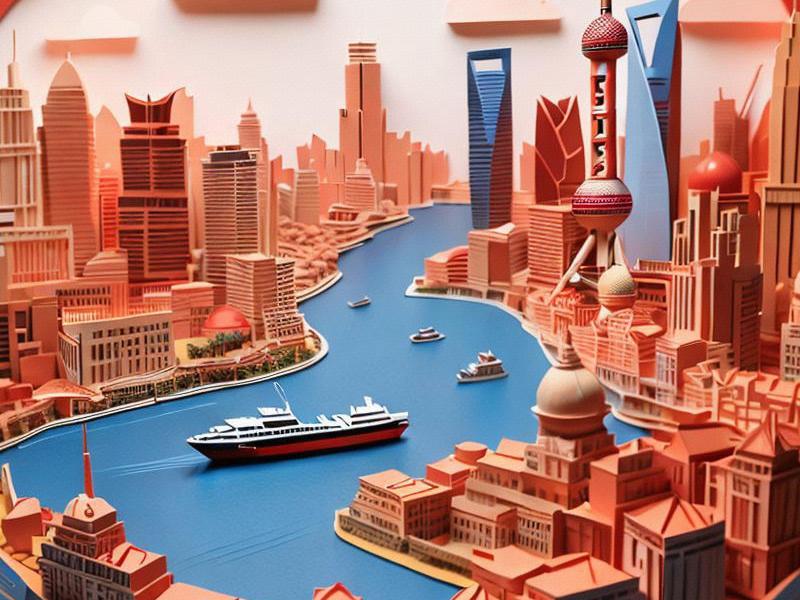
Shanghai, known as the "Pearl of the Orient," stands as a beacon of China's economic and cultural evolution. This vibrant metropolis, with its stunning skyline and deep historical roots, offers a unique blend of tradition and modernity. From the bustling streets of the Bund to the serene beauty of the Yu Garden, Shanghai is a city that captivates the imagination and tells the story of China's remarkable journey towards modernization.
The history of Shanghai dates back over 7,000 years, with its strategic location at the mouth of the Yangtze River making it a crucial hub for trade and commerce. During the Ming and Qing dynasties, Shanghai flourished as a port city, attracting merchants from all over the world. The opening of the Treaty Ports in the 19th century marked a turning point, as Shanghai became a center for international trade and cultural exchange.
The 20th century saw Shanghai emerge as a global metropolis. The Bund, with its colonial-era architecture, stands as a testament to the city's cosmopolitan past. The juxtaposition of the historic Bund and the futuristic skyline of Pudong is a visual representation of Shanghai's transformation. Pudong, once a rural area, has been transformed into a symbol of China's economic prowess, housing the iconic Oriental Pearl Tower, the Jin Mao Tower, and the Shanghai Tower.
Shanghai's rapid urban development is a marvel of modern engineering and planning. The city has invested heavily in infrastructure, transportation, and green spaces. The Maglev train, which connects Pudong International Airport to the city center in just seven minutes, is a testament to Shanghai's commitment to innovation. The city's extensive metro system, one of the busiest in the world, provides efficient and convenient transportation for millions of residents and visitors.
新上海龙凤419会所 Culturally, Shanghai is a melting pot of influences. The city is renowned for its art deco architecture, jazz music, and fashion. The French Concession, with its charming streets and cafes, offers a glimpse into the city's colonial past. The Shanghai Museum, home to a vast collection of Chinese art, attracts art enthusiasts from around the globe. The city's vibrant arts scene, with galleries, theaters, and music venues, reflects its dynamic cultural identity.
Shanghai's culinary scene is another highlight, offering a fusion of traditional Shanghainese cuisine and international flavors. From the famous xiaolongbao (soup dumplings) to the exquisite dim sum, the city's food culture is a treat for the senses. The bustling night markets and trendy restaurants provide a diverse range of dining experiences, catering to all tastes and budgets.
As an economic hub, Shanghai plays a pivotal role in China's rise as a global power. The city is home to the Shanghai Stock Exchange, one of the largest in the world, and hosts numerous multinational corporations. The Free Trade Zone, established to promote trade and investment, has further solidified Shanghai's position as a key player in the global economy. The city's strategic location and well-developed infrastructure make it an ideal destination for businesses looking to expand in Asia.
Shanghai's global influence extends beyond the economic realm. The city has hosted numerous international events, including the World Expo in 2010, which attracted millions of visitors and showcased China's achievements. The Expo's theme, "Better City, Better Life," highlighted Shanghai's commitment to sustainable urban development and quality of life for its residents.
上海龙凤419体验 The city's efforts to balance rapid development with environmental sustainability are commendable. Shanghai has implemented various initiatives to reduce pollution, promote renewable energy, and enhance green spaces. The construction of the Zhangjiang Hi-Tech Park and the Xuhui Greenway reflects the city's dedication to fostering innovation and preserving natural beauty.
Education and innovation are at the heart of Shanghai's vision for the future. The city is home to prestigious universities and research institutions, attracting top talent from around the world. ShanghaiTech University and Fudan University are among the leading institutions that contribute to the city's intellectual capital. The city's focus on STEM education and research positions it as a leader in technological innovation.
Shanghai's urban planning is a model for sustainable development. The city has implemented smart city initiatives, leveraging technology to improve the quality of life for its residents. Smart traffic management systems, digital public services, and innovative housing solutions are just a few examples of how Shanghai is embracing the future.
上海贵族宝贝sh1314 The people of Shanghai are the heart and soul of the city. With a population of over 24 million, Shanghai is a diverse and dynamic community. The city's residents, known for their resilience and adaptability, have played a crucial role in the city's transformation. The blend of traditional Chinese culture and modern Western influences is evident in the daily lives of the people, creating a unique cultural tapestry.
Shanghai's future looks promising as the city continues to evolve and adapt to the challenges of the 21st century. The government's vision for Shanghai includes further urban development, environmental sustainability, and global connectivity. The city aims to become a leading global city, known for its innovation, culture, and quality of life.
In conclusion, Shanghai is a city that embodies the spirit of China's modernization. Its rich history, rapid urban development, cultural heritage, and economic prowess make it a fascinating subject of study. As Shanghai continues to grow and innovate, it remains a symbol of China's aspirations and a testament to the possibilities of urban development in the modern era.
